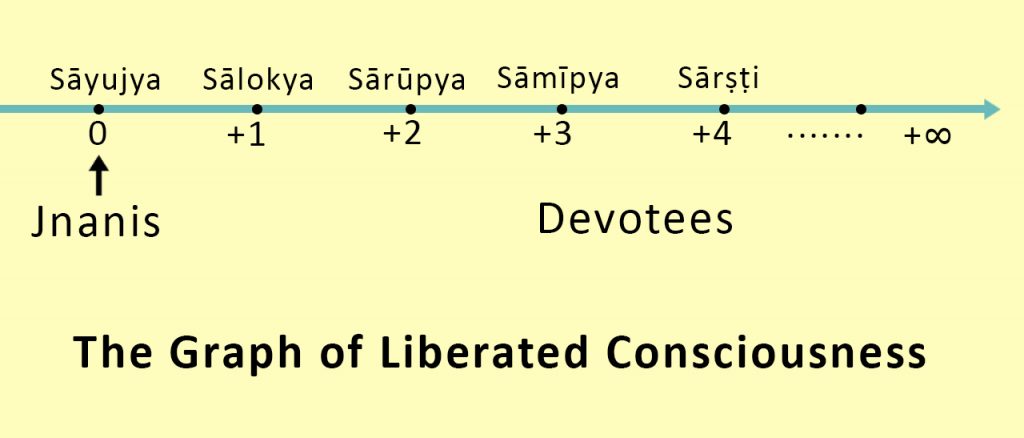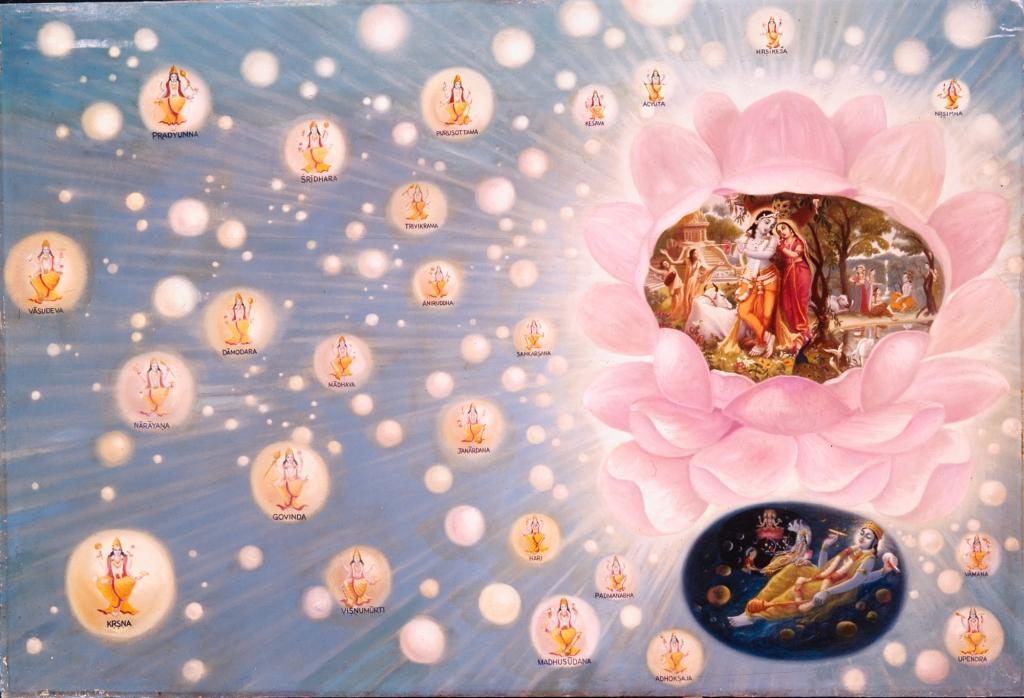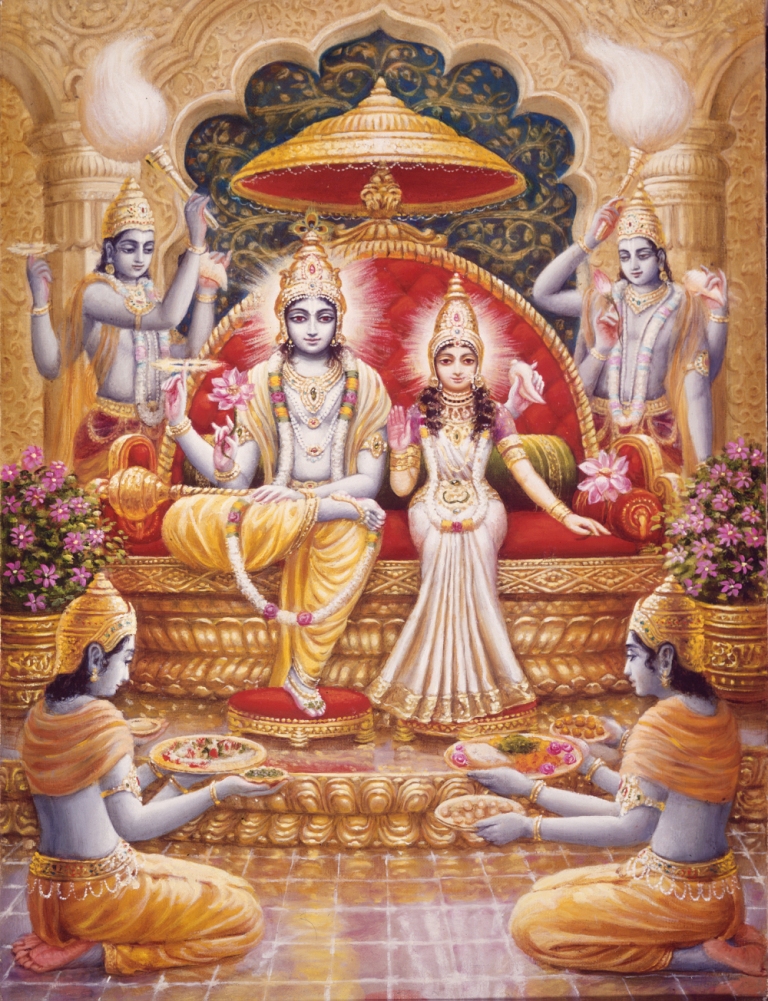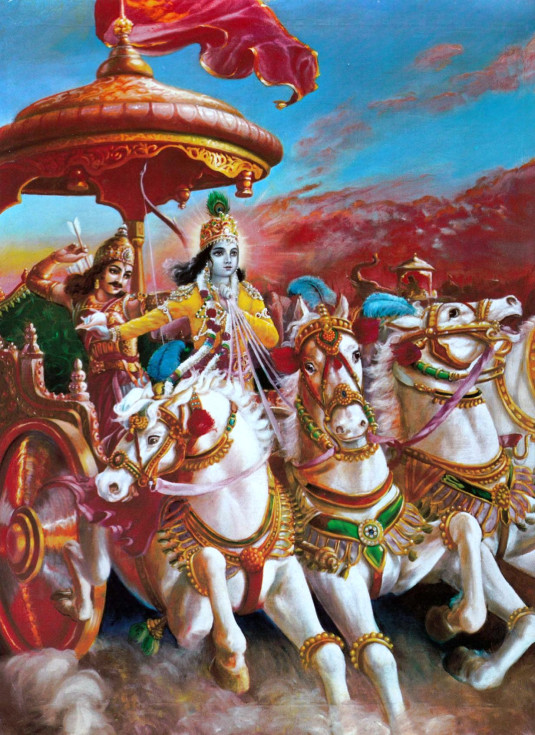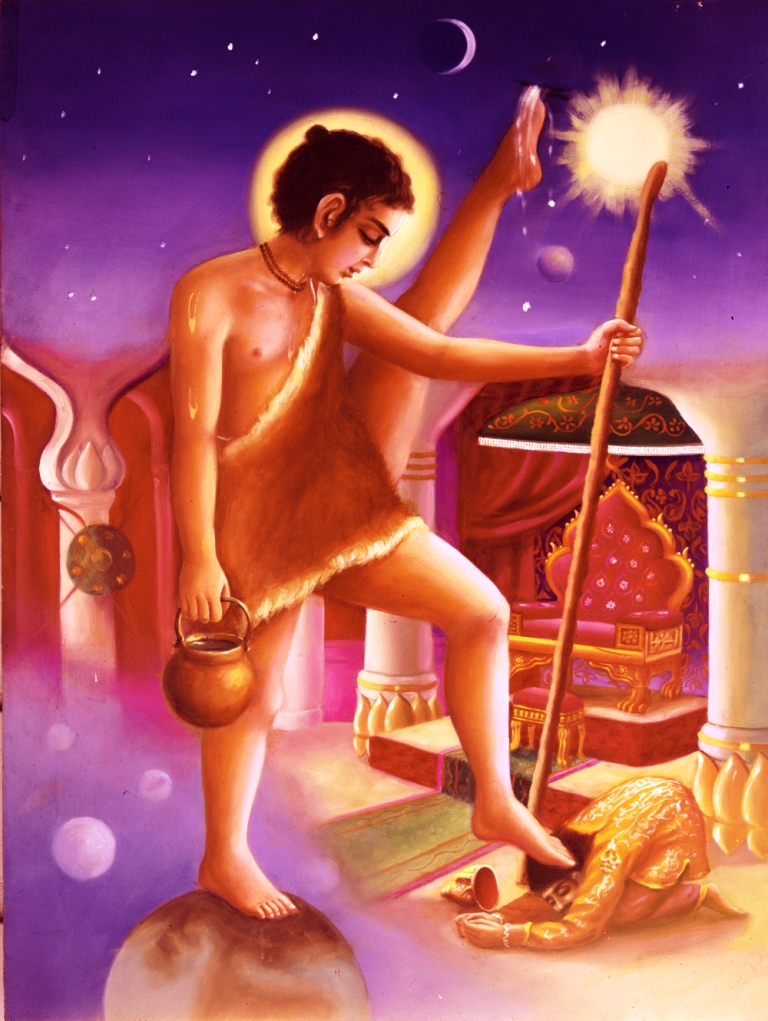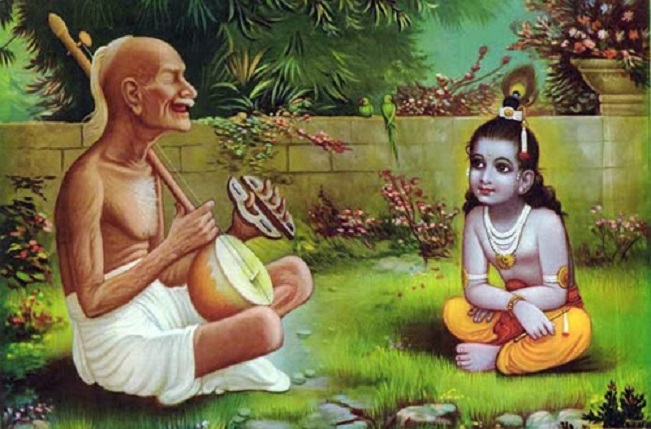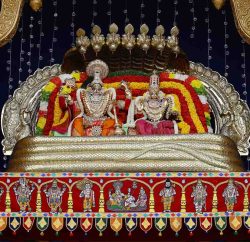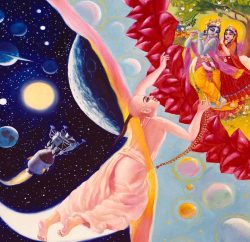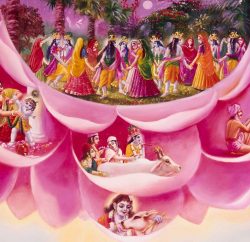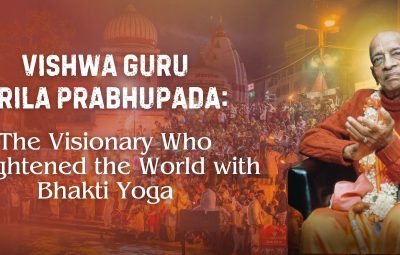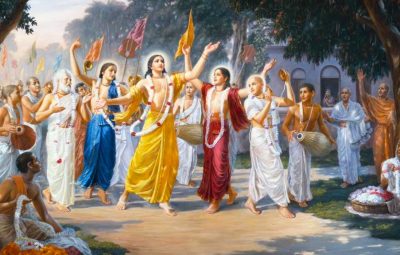In the Srimad-Bhagavatam (2.10.6), mukti is defined as muktir hitvānyathā-rūpaṁ svarūpeṇa vyavasthitiḥ – mukti means liberation from the contaminated consciousness of this material world and situation in pure consciousness.
For a mukta, there is no more taking birth in this material world. As we have understood from the previous article – The Consciousness Graph – coming to zero is only a preliminary stage of liberation but beyond the zero exist positive numbers up to infinity.
Table of Contents
Types of Mukti
Mukti begins with zero but exists up to positive infinity. It can be broadly classified into five categories.
0 – Sāyujya-mukti
1 – Sālokya-mukti
2 – Sārūpya-mukti
3 – Sāmīpya-mukti
4 – Sārṣṭi-mukti
Sāyujya-Mukti: This type of mukti or liberation is to merge into the existence. Our birth was from the Supreme Absolute. Then after liberation, we merge into the existence of the Supreme.
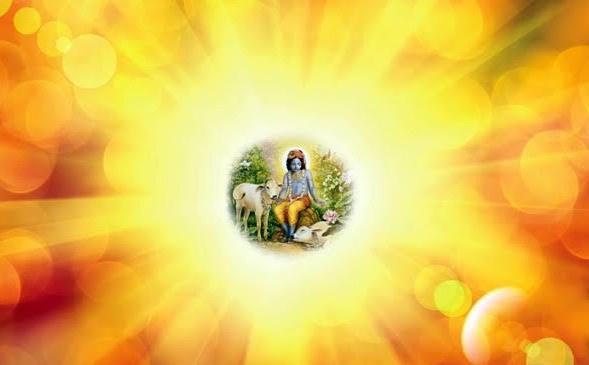
Sāyujya-Mukti
Sālokya-Mukti: Sālokya means one can get habitation, residence, on the same planet where God resides. That is sālokya-mukti.
Sārūpya-Mukti: It means the mukta (liberated soul) becomes like the Supreme Lord, just like Narayana. Narayana has got four hands with śaṅkha (conch-shell), chakra (discus), gadā (club) and padma (lotus flower). So, everyone who attains that sārūpya-mukti becomes like the Supreme Lord.
Sāmīpya-Mukti: Sāmīpya means the liberated soul is always in the company of the Lord. Just like Arjuna. Whenever Lord takes His incarnation, Arjuna is there to accompany. They are never separated. That is sāmīpya-mukti.
Sārṣṭi Mukti means to get the same opulence. One gets all the opulence as the Lord has got. One becomes as good as Lord; becomes so powerful. This is sārṣṭi-mukti. Bali Maharaja was granted a special planet called Sutala by Lord Vamana, where he enjoyed a great opulence like that of the Lord. Thus King Bali is an example for Sārṣṭi Mukti.
Bhakti is Greater than Mukti
Mukti means mokṣa. Krishna is very kind. Whatever we want, Krishna will give us, very easily, even mukti. But, He is very strict to give us bhakti. Real mukti means to be situated in bhakti. Krishna, although the Supreme, remains within the grip of the bhaktas. There are different stages of bhaktas, like the Pandavas, but the gopis excel them, and Radharani excels all. Although, Krishna is the īśvaraḥ paramaḥ, the supreme controller, He is controlled by Radharani, because She is a devotee nobody can excel, neither in devotion nor in service.
Thus, Krishna is very cautious to endow one with this devotional service. He can give mukti very easily. To achieve mukti it is not a very difficult job. As Bilvamangala Thakura says: muktiḥ svayaṁ mukulitāñjaliḥ sevate ‘smān: For a devotee, Mukti will stand before him with folded hands.
For a devotee, mukti is not a very great achievement. Mukti means being situated in one’s constitutional position. The constitutional position of every living being is that of the Lord’s servant; therefore when a living entity is engaged in the Lord’s loving service, he has already attained mukti. Consequently, a devotee does not aspire for mukti, even if it is offered by the Supreme Lord Himself.
Knowledge gifts Mukti
When we give up our wrong identification with our body and stay in our real identification that “I am an eternal servant of God, and God is my eternal master,” this very understanding means mukti. If one thinks that “I am something of this material world” or “I am God myself,” There is no question of mukti.
Mukti does not take so much time. It doesn’t even need so many things, one shouldn’t undergo severe austerities or go to the jungle or the Himalayas and meditate or press one’s nose. Simply by understanding a plain thing that “I am a servant of Krishna” — one is Mukta.
As we see, under different types of mukti except Sāyujya-mukti, there is an opportunity for a devotee to relate with the Supreme Lord in different rasas, in Vaikuntha planets.
What are these Rasas- the essence relationships? Let us explore in our next article.
Related Links : Five things to do on Vaikuntha Ekadashi| Why do we celebrate Vaikuntha Ekadashi | Why Vaikuntha series | Sri Vaikuntha Ekadashi


